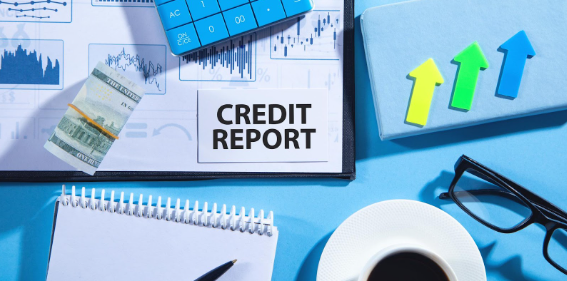
How to Apply for Your Credit Report in Canada
You may take good care of your credit, make payments on time, and make wise financial decisions. But it’s important to routinely check your credit report, just like how you don’t wait until you have a fever to get a checkup. It provides you with a general picture of your financial situation and makes sure there are no hidden problems. Consider it a regular medical checkup for your financial health. If you’ve decided to look over your credit report, you’ve come to the perfect place. Let us show you how to get there and, more importantly, what to do with the information you find there.
Equifax and TransUnion
Two names often come to mind when discussing credit reports in Canada: Equifax and TransUnion. These two are the main credit reporting organizations in charge of keeping thorough records of your financial background. Imagine them as libraries, except instead of books, they contain data about your credit and debt management practices. They have everything recorded, from loans you’ve taken out to how promptly you’ve made payments.
Once a year, each of these companies can provide you with a free credit report. A benefit of this is that everyone will have unrestricted access to their financial information.
- For Equifax: Their website is [www.equifax.ca](http://www.equifax.ca). Their official number is 1-800-465-7166.
- For TransUnion: Their website is [www.transunion.ca](http://www.transunion.ca). Their official contact is 1-800-663-9980.
What Your Credit Report Consists Of

At first, reviewing your credit report may seem like translating a foreign language. But don’t worry, it is divided into several parts. Let’s examine them:
Personal Information
This consists of your basic information like name, address, phone number, etc. Your personal information doesn’t have any effect on your credit.
Credit History
It is the credit report’s main point! Details about credit accounts, including loans, mortgages, and credit cards, are available here. It gives details about each account, including the date it was started, the credit limit or loan amount, and your payment history.
Public Records
Any financial legal issues, such as bankruptcies, consumer proposals, tax liens, or court judgements, are included in this section. Your credit score could be greatly impacted by these.
Inquiries
Every time you or a lender seeks a copy of your credit report, it is documented as an inquiry. This section lists who reviewed your report, and when. Too many inquiries in a short period of time can be a red flag.
Collections
Your past due bills will be listed here, including any that were turned over to collection agencies. It serves as a warning to lenders regarding possible credit concerns.
Trade Items
This delves more deeply into your credit accounts and offers more thorough details on each of them.
Keep in mind that each part of your credit report contributes differently to the overall picture of your financial habits. You’ll be more able to efficiently manage your credit if you understand each aspect.
Why Should You Check Your Credit Report?

Maintaining accuracy through routine checks keeps you vigilant for mistakes or indications of identity theft. Also, being aware of your report gives you more control over important life decisions. It serves as your financial report card, and checking it helps you stay in control of your finances.
How to Check Your Credit Report: Three Different Ways
Online
The internet has made it simple to obtain your credit report. Major bureau websites like Equifax and TransUnion provide simple access for requesting your report.
By Mail
It’s okay to still have faith in the old ways! Sending an application form with all the necessary information to the credit agency will allow you to receive a postal copy of your report. Although it could take a little longer, it is just as trustworthy as the internet method.
Over the Phone
Both Equifax and TransUnion feature toll-free numbers for people who prefer a more personal touch. Your report will be delivered to your mailbox after making a brief phone call and responding to a few identification questions
What to Do If You Find Errors on Your Credit Report
It can be scary to find errors on your credit report. But don’t worry; there is a simple procedure to fix these problems. Let’s go over it step by step:
- Document Everything: Compile proof before reaching out. Having evidence will help your argument, whether it’s in the form of receipts, emails, or bank statements. Make copies so that you are ready.
- Contact the Credit Bureau: Equifax and TransUnion both have channels specifically for handling complaints. Inform them of the mistake and offer your supporting documentation. Usually, it takes them 30 days to investigate and react.
- Reach Out to the Lender or Company Reporting: Sometimes, a mistake may have been made by the lender. Inform them of the discrepancy and provide your supporting evidence. They’ll update the credit bureau if they find the error.
- Keep Detailed Records: Record all of your communications—phone conversations, emails, etc.—during the dispute process. You may need this later.
- Stay Persistent: It could take some time, but it’s worth the effort to ensure the correctness of your report. Consider getting in touch with them again if you feel that an error hasn’t been properly resolved.
Bottom Line
Sometimes, you already know what’s in your credit report even without seeing it because you know how you’ve been going about your finances, even at that, still check.
Your credit score can be low due to a poor credit history that resulted from managing multiple loans. You don’t have to keep struggling. You can speak with one of our debt experts at EmpireOne Credit to see how you can better manage your debt. Your debt can be reduced by up to 80%, and interest will stop immediately. Call us at (416) 900-2324 to schedule a free consultation with us. Being debt-free feels good!





